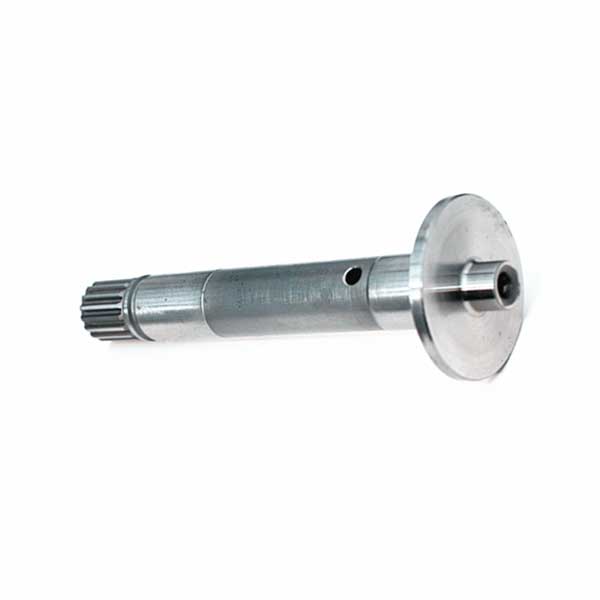Shaft forgings should choose different materials and adopt different heat treatment specifications (such as quenching and tempering, normalizing, quenching, etc.) according to different working conditions and use requirements, in order to obtain certain strength, toughness and wear resistance.
45 steel is a commonly used material for shaft forgings. It is cheap and can obtain better cutting performance after quenching and tempering (or normalizing), and can obtain comprehensive mechanical properties such as higher strength and toughness. The surface hardness after quenching can be improved. Up to 45~52HRC.
Alloy structural steel such as 40Cr is suitable for shaft forgings with medium precision and high rotational speed. This kind of steel has good comprehensive mechanical properties after quenching and tempering.
Bearing steel GCr15 and spring steel 65Mn, after quenching and tempering and surface high-frequency quenching. The surface hardness can reach 50~58HRC and has high fatigue resistance and good wear resistance, and can manufacture high-precision shafts.

38CrMoAIA nitrided steel can be used for the main shaft of precision machine tools (such as the grinding wheel shaft of grinding machine and the main shaft of coordinate boring machine). After quenching and tempering and surface nitriding, this kind of steel can not only obtain high surface hardness, but also maintain a soft core, so it has good impact resistance and toughness. Compared with carburizing and quenching steel, it has the characteristics of small heat treatment deformation and higher hardness.
…
More detailed information about the technical requirements of shaft forgings can be accessed by clicking:https://www.gold-emperor.com/technical-requirements-for-forged-shaft-forgings/


